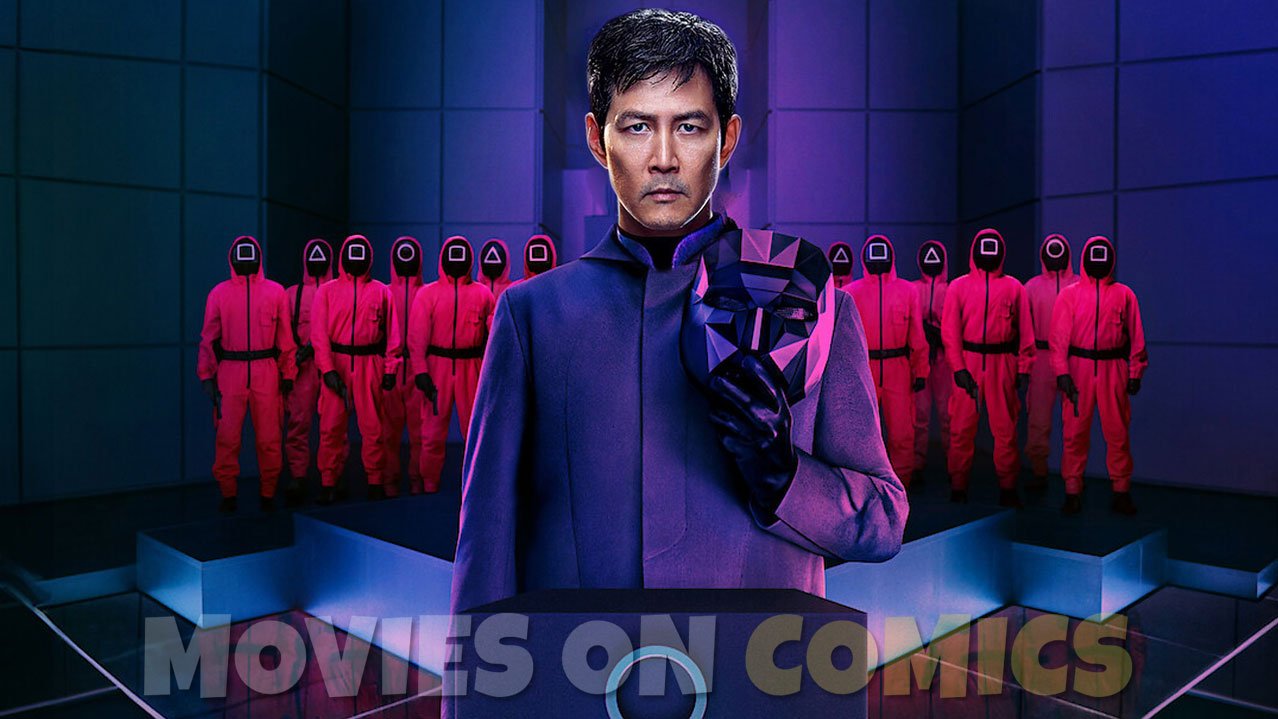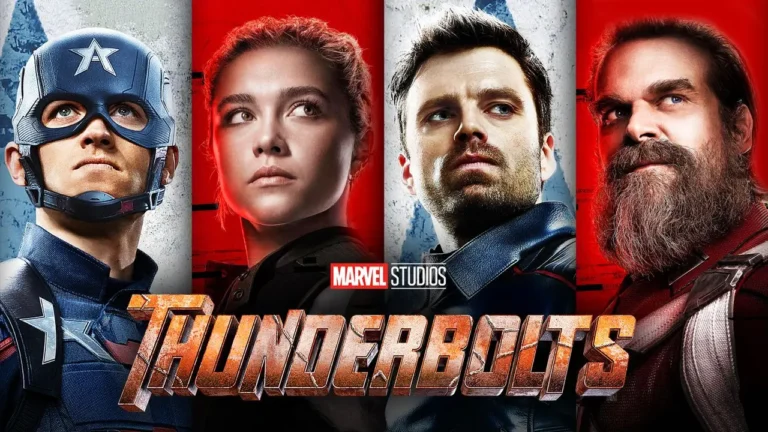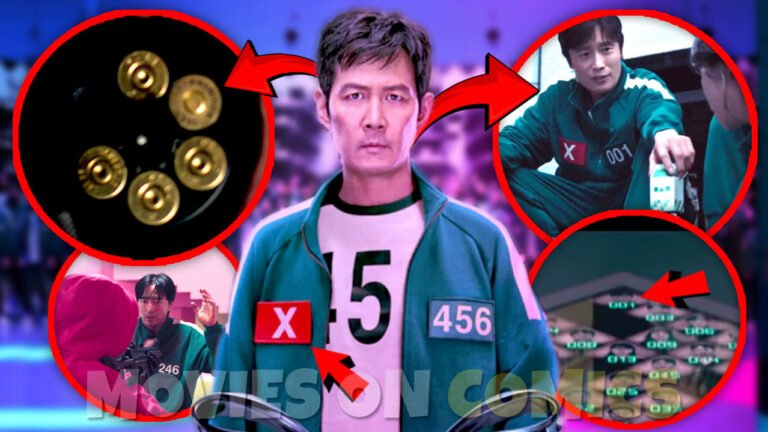
Gi Hun Will Become New Front Man | Squid Game S2 All Theories Explained
Hi Superfans! I’m Swapnil, and today we’re diving deep into the labyrinth of theories and intricate details surrounding Squid Game Season 2. The show that captivated audiences around the world is back, and with it comes an avalanche of speculation and theories as to where the story is headed. With its blend of psychological horror, social commentary, and emotional depth, Squid Game offers us layers of meaning just waiting to be unearthed.
From hidden connections between characters to more intricate plots involving the very fabric of the game, we’re in for an exciting ride. Buckle up as we explore these theories, hidden details, and the emotional stakes at play in this globally beloved series.
The Familial Web: Hwang In-ho, Oh Il-nam, and Hwang Jun-ho
One of the most riveting theories that have emerged since Season 1 revolves around the potential familial connection between Hwang In-ho (the Front Man), Oh Il-nam (Player 001), and Hwang Jun-ho, the detective. The idea that these characters are interlinked through deeper family ties adds a fascinating dimension to the story.
Brotherly Mysteries
In Season 1, we learn that Hwang Jun-ho is the brother of Hwang In-ho. Their dynamic hints at a complicated relationship marked by secrecy and tragedy. As viewers, we are led to believe that In-ho has been residing in a morally ambiguous role as the Front Man of the games, overseeing a brutal competition devoid of empathy. Yet, when Jun-ho confronts his mother, she identifies herself as In-ho’s stepmother, which leads us down an intriguing pathway of familial enigmas.
This stepmother dynamic raises essential questions: How does this affect the brotherly bond? Did In-ho and Jun-ho come to view each other as siblings despite not sharing a biological father? If they don’t share a father, it opens up possibilities for their identities and what led them to their respective roles within the deadly games. Since no father figure is ever mentioned throughout the series, we are left to ponder whether he abandoned them or if a darker family secret lies beneath the surface.
Oh Il-nam’s Hidden Children
Oh Il-nam, on the other hand, frequently expresses sentiments about his son and barely touches upon other family members. In his conversations with Gi-hun, Il-nam discusses familial bonds and memories of his wife, often harboring a sense of nostalgia intertwined with regret. The theories suggest that his reluctance to discuss his family could signify that he’s lost them, whether physically or emotionally.
His notion of “having a son” creates room for speculation: if both In-ho and Il-nam indeed share a familial relationship, could Hwang In-ho be the lost son Il-nam frequently hints at? The idea becomes even more striking when we realize that “Il-nam” translates to “first man,” while “Young-il” (In-ho’s cover name) means “first one” or “number one.” These symbolic names may suggest a deeper bond between them, hinting that they were both, in essence, “firsts” in the ruthless world they inhabit.
Psychological Parallels: Ali and Sang-woo
As we navigate the moral complexities presented in the series, the parallel dynamics of characters such as Ali and Sang-woo offer a sharp contrast highlighting themes of loyalty and exploitation. Both characters find themselves in vulnerable positions, yet their choices diverge dramatically.
Loyalty in Betrayal
Ali, the immigrant worker, embodies the archetype of loyalty despite overwhelming odds. He places his trust in Sang-woo, who initially seems to reciprocate that camaraderie. Yet, Sang-woo’s eventual betrayal becomes a gut-wrenching reminder of the fragility of trust. His choices, driven by desperation and a desire to escape his debts, depict a harsh juxtaposition to Ali’s unwavering loyalty. These contrasting views serve not just as a character study of two men shaped by their environments, but also as a commentary on the darker tendencies within human nature.
This relationship mirrors the broader themes in Squid Game, showing how even the closest of alliances can break under extreme pressure. The power struggles and moral dilemmas represented here amplify the fatalistic narrative, underlining how critical choices lead to devastating consequences.
The Connection Between No-eul and Sae-byeok: A Mother’s Legacy
A new character introduced in Season 2, No-eul, has sparked speculation among fans regarding her possible connection to the beloved character, Kang Sae-byeok. The shared surname “Kang” and their backgrounds as North Korean defectors lay the groundwork for a compelling theory: Could No-eul be Sae-byeok’s mother?
Thematic Elements of Family and Separation
Both characters represent the bittersweet hopes and heart-wrenching sacrifices endured by those escaping the dire realities of North Korea. Sae-byeok’s journey is marred by loss, desperately seeking to reunite with her family while grappling with painful memories of her past. She often speaks of her mother, who she believes may be in a dire situation herself, adding an emotional weight that resonates deeply with viewers.
When we consider No-eul’s character, her potential storyline of searching for a child echoes Sae-byeok’s plight. Their parallel experiences illuminated the emotional complexities of family separation and resilience. What if No-eul’s quest to find her child ultimately leads her back to Sae-byeok? This potential reunion could offer a powerful moment of catharsis, allowing audiences to witness the unbreakable bonds of motherhood amid chaotic circumstances.
The vivid contrasts in their fates serve to reinforce the narrative’s exploration of family ties—how they can provide strength but also amplify the agony of separation. Fans are left to wonder whether this possible connection will manifest as a poignant reunion or whether it will merely be another layer of heartbreak within the gripping story.
The Front Man’s True Intentions: Puppetmaster or Anarchist?
One of the most polarizing characters in Squid Game is the Front Man, whose motives invite a myriad of theories. Many believe he is not just a former winner acting as the overseer of the games; rather, he may be an undercover operative biding his time to dismantle the system.
The Long Game Strategy
This theory suggests that the Front Man is playing a longer, more elaborate game than we initially perceive. He displays remarkable tactical skills throughout the series, demonstrating a calm demeanor and calculated decision-making. If we consider him as someone gathering information to bring down the corrupt infrastructure of the Squid Game, it changes our perception entirely.
Gi-hun: The Chaotic Catalyst
Gi-hun’s return to the Squid Game has created new dynamics for the Front Man. Gi-hun exudes an unpredictable nature; his defiance adds chaos that the Front Man might be utilizing as cover for his own deeper agenda. The theory posits that as Gi-hun acts out against the games, he becomes unwittingly useful to the Front Man. The unexpected turbulence Gi-hun causes allows Room for the Front Man to craft strategic moves against the very games he appears to uphold.
Should this theory hold weight, it paints the Front Man as a multidimensional character, not a straightforward antagonist but rather a tragic figure entrenched in moral ambiguity. The lines between good and evil blur, forcing viewers to confront the difficult truths of survival and systemic cruelty.
The Importance of Choice: Voters’ Redemption
Another intriguing theory revolves around the players who consistently voted against continuing the games. This highlights the essential theme of choice—a cornerstone in the series that resonates with audiences worldwide. The notion that only players who voted “no” in all rounds could survive brings a new layer to the established narrative.
Resistance Against Greed
The act of voting symbolizes defiance against greed and the intrinsic value of human life. It suggests that those who rejected the lure of monetary gain and opt for life preservation hold a certain narrative significance. By focusing on their decisions, the show emphasizes that integrity can become a form of resistance amid dire circumstances.
Within this framework, these characters could serve as morally grounded players who hold the potential to escape the twisted norms of the Squid Game. This path of resistance could foster rich storytelling opportunities as these characters navigate their journeys of survival, ultimately exploring the price of choosing morality over desperation.
Parallel Symbolism in Voting Scenes
The extended focus on voting scenes in Season 2 could foreshadow the importance placed on choice within the upcoming narrative arcs. In Season 1, a significant vote resulted in the majority choosing to leave the game—only to be dragged back by the allure of money. This setup of tension through the voting process echoes themes of coercion and temptation, presenting a broader philosophical inquiry about free will and choice.
The implications of this theory stretch far beyond the confines of the games, seeking to explore the ethical implications of gambling one’s life against the choices imposed by an inequitable society.
Captain Park: Manipulation or Sacrifice?
The introduction of Captain Park presents another layer of complexity to the overarching conspiracies within Squid Game. His seemingly kind actions toward Jun-ho may hide ulterior motives, suggesting he is perhaps a puppetmaster working under the guidance of the Front Man.
Monitoring and Control
If Captain Park’s actions are orchestrated by the Front Man to monitor Jun-ho and keep him under control rather than genuinely supporting him, it raises essential questions about loyalty and betrayal. The interplay between power dynamics and personal motivations creates a sense of foreboding—how many characters are playing their own game, and at what cost?
This manipulation often reflects real-world dynamics where authority figures can impose control over individuals through coercive means. The moral quandaries and emotional stakes highlighted by Captain Park’s actions amplify the show’s exploration of conflict, trust, and deception.
Unmasking the Undercover VIP: Player 100
The theory surrounding Player 100, Im Jeong-dae, posits that he might be an undercover VIP participating stealthily within the games. His behavior, including his eagerness for the games to continue, raises suspicions among viewers.
The Calculated Risks of a VIP
Should Jeong-dae truly be a spy among players, his existence introduces thrilling tension and unpredictability. It poses questions about loyalty and deception amid an environment where no one can be trusted. This angle could lead to thrilling plot developments as Player 100 navigates his dual identity.
The potential for conflict derived from discovering his hidden identity could cause rifts between characters who believe they can trust one another. The trauma of betrayal and survival turns up the stakes dramatically, ensuring that the tension remains palpable throughout the unfolding narrative.
The Legacy of Previous Winners: Thanos and Beyond
As Season 2 unfolds, fans speculate whether Thanos, a character introduced in this installment, might be linked to previous winners of the Squid Game. His offhand remark about his father’s drunken rants indicates a deeper connection to the games and a possible ancestry that has ties to its brutal history.
Understanding the Complexity of Legacy
This theory alludes to the possibility that the shadow of previous winners hangs over the current players. If Thanos is indeed connected to a past winner, it underscores the inescapable cycle of violence and despair within the Squid Game structure. Every new generation seems doomed to repeat the mistakes of its predecessors—a cycle of trauma perpetuated over time.
Should this theory solidify into narrative content, it could open a Pandora’s box of moral dialogues exploring themes of inherited trauma, systemic oppression, and how history has an unyielding grip on those attempting to break free from it.
Player 246: Life After the Games?
The fate of Player 246 remains shrouded in mystery, sparking debates about whether he survived the turmoil of the games. Speculation surrounding Shooter 011’s non-lethal shots suggests that 246 could still be alive despite assumptions of his demise.
Themes of Resilience and Survival
The potential survival of Player 246 would introduce an additional layer to the narrative, showcasing themes of resilience. If he returns, it could offer poignant commentary on human tenacity and the lengths individuals go to protect their loved ones—even in the face of overwhelming odds.
The contrast of Player 246’s fate against the brutal reality presented by the games could signal a shift toward hope amid despair, encouraging viewers to reflect on the enduring spirit and the will to survive against all odds.
Gi-hun: The Path of the New Front Man?
The possibility of Gi-hun stepping into the role of the Front Man adds a fascinating twist to the character’s arc. He begins as a man driven by survival for himself and his loved ones, but by the end of Season 2, his moral integrity has been tested to its limits. Could Gi-hun’s journey lead him down a path where he eventually becomes a new Front Man, embodying the very essence of what he once detested?
The Transformation of Morality
Gi-hun’s struggles embody the heart of the human experience explored in Squid Game. The journey toward becoming a new Front Man mirrors the classic tales of power corrupting. As he witnesses the sacrifices made in the name of survival, we’re led to question whether good intentions can withstand the relentless pressure of the games.
By exploring the potential for Gi-hun’s transformation from a sympathetic protagonist to an antagonist in his own right, the narrative evokes conflicting emotions. These storytelling choices challenge viewers to confront the dark corners of their humanity—asking whether survival justifies immoral choices.
Conclusion: The Metaphor of the Game
As we conclude this extensive exploration of theories surrounding Squid Game Season 2, we can’t help but marvel at how every layer contributes to a rich narrative tapestry. The themes of family, choice, morality, trust, and the cyclical nature of trauma resonate deeply through each character’s journey. The series does not simply entertain; it compels us to grapple with fundamental questions about society, human behavior, and the cost of survival.
As we look forward to Season 3, the questions posed by these theories illuminate a path filled with unresolved complexities and emotional depth. What lies ahead for Gi-hun, the Front Man, and the myriad of players caught in this deadly web—how will they navigate a reality where the lines between morality and survival blur dangerously?
Engage with me in the comments below. What are your theories? Which themes resonate the most with you? Let’s continue to explore the profound impact of Squid Game as we anticipate its next chapter.





